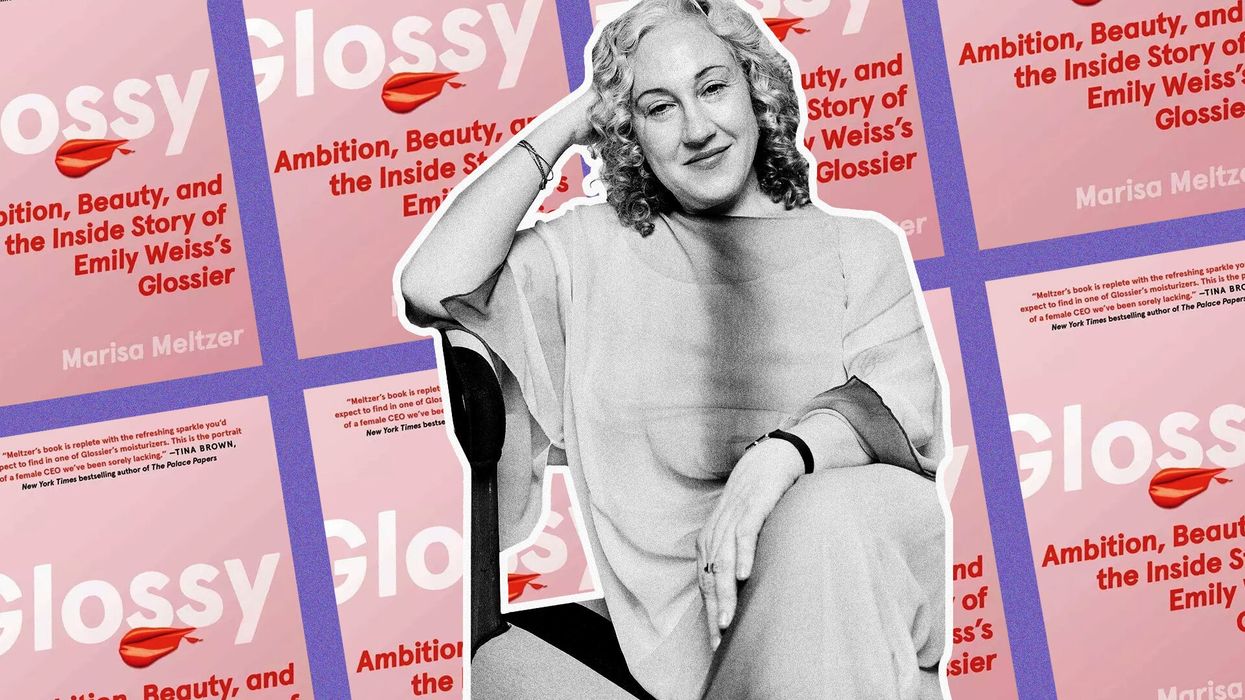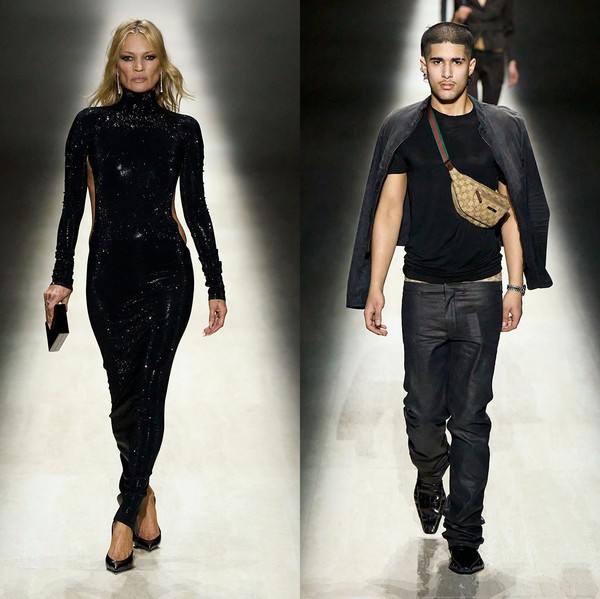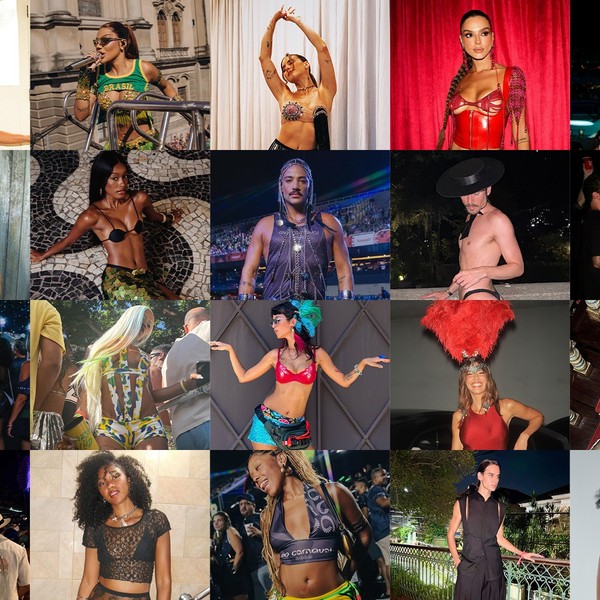Into the Gloss: A Look Inside Emily Weiss’s Glossier
Marisa Meltzer’s new book details the highs and lows of the era-defining beauty brand.

Today, no one would consider “no-makeup makeup” to be groundbreaking, but when Emily Weiss launched Glossier in 2014—a digital-first beauty company that spoke to their consumers like a friend—the concept was unheard of. Weiss, a Connecticut native who studied at New York University, launched the beauty website Into the Gloss while working as a fashion assistant at W and Vogue. The website’s iconic Top Shelf interviews gave the public an inside look into the bathrooms and beauty routines of celebrities, socialites, and entrepreneurs. Weiss then turned that reach into a billion-dollar business.
In Glossy, journalist and writer Marisa Meltzer takes readers on a journey through Glossier’s early years and offers a detailed, thorough, and balanced portrait of the woman behind the brand. Meltzer also delivers on the juicy, illuminating details readers are surely expecting. For example, employees “secretly art-directed the selfies sent to them by their fans, to solidify and streamline the Glossier aesthetic,” and for the first Glossier shoot, “in order for the expressions to not be sinister, sinewy glances, they were throwing little pieces of bread at the models and the models were trying to catch it with their mouths.”
Below, we spoke to Meltzer about why she decided to write a book about this topic, her reporting process, and more.
Why did you believe that now was the right moment for a book on Glossier and Emily Weiss?
“Well, it actually started more as a larger book about beauty, and that idea came during the pandemic. I’ve written and reported on beauty a lot and had sort of realized that no one outside of people who write about beauty, and maybe fashion, understood the sheer economic power and influence of the beauty industry. I became obsessed with it. At the same time, during the pandemic, all we were doing was looking in mirrors or seeing ourselves in Zooms, and beauty seemed to take precedence over fashion.
“Glossier was always going to be the central narrative, and the more I reported and wrote, it was dwarfing everything else. So, it felt like the time to write about it. In some ways, I was like, ‘Is this a weird time to write about [Glossier] because the company is so relatively new?’ I didn't really know how it was going to end; I thought Emily Weiss was going to become the female millennial beauty queenpin, our Steve Jobs, or something like that. Then, right around the time I was finishing the first or second draft, she announced she was stepping down as CEO. At first, I got really scared that it made the book or the brand less important or relevant.
“Then I realized that it actually gave this story a beginning, middle, and end. I think that [this book] tells the first act of Glossier's life, and hopefully, there will be a lot more to say. But I think the early years of the company are so vivid and so important, and Glossier has a fanbase like no other, so people want to know. They want to know the gossip and the inside stories along with the deep dives into feminism and finance and everything else that I wanted to do.”
You mentioned Emily Weiss stepping down. Were there other instances where you felt the discourse around beauty or Glossier changing while you were working on the book?
“Oh, for sure. I was working on the book while they were dealing with the aftermath of ‘Out At The Gloss’ and the allegations of insensitive treatment of workers, particularly people of color who worked in the retail stores. During the course of writing the book, I think the color range of the concealers went from maybe 12 to 36 or something around that. I would have to check what the latest is, but I think it's something like that. So, the company was changing its product offerings and course correcting. Even at the very end of reporting and editing this winter, they told me they were phasing out the original Rose Mist, were launching in Sephora, and were reformulating Balm Dot Com and Boy Brow.
“I was begging my publisher to update little things until the very last minute. It’s actually really exciting for book writing because it feels really dynamic, but I think it can also be stressful because you never know what's going to happen.”
I feel like the beauty industry is very tight-knit and everyone knows everyone. What was the experience like for you reporting and writing this book? Did you find that people were open to speaking with you?
“I think people like editors and fellow brand owners were open to talking about beauty, generally. But one of the nice things about writing a book is you don't necessarily have the same standards that you have to have with say, the Wall Street Journal. I could quote people anonymously, which you can't do in a lot of newspapers. And so that is when things can get spicy, when you tell people, ‘Look, you can talk to me and I don't have to use your name.’
“Once Emily stepped down and maybe she was perceived as, I don't know, less of a threat, Glossier became more of a company run by seasoned executives, and some people came back to me who had initially said no. I think they felt more comfortable talking even if it was without their names. I [also] think that when any kind of company gets that much notability, people have a lot of opinions and plenty of employees wanted to talk. People had wonderful things to say and they had frustrations, sometimes those were the same people.”
I feel like your book didn’t just illustrate how Glossier changed the beauty industry, but you also captured how our culture at large evolved in the 2010s. Was that one of your intentions when you started writing the book?
“It was definitely one of my intentions. I love context, and I think for this book, I wanted it to work on different levels. I wanted to write a book for people who are interested in beauty brands or the beauty industry. But I also wanted it to work for someone who was interested in books about startups or someone who was interested in a book about the ‘Girl Boss’ era.”
When Weiss was pitching the brand and doing more interviews, she often quoted male tech founders. The fact that she was using the language of these men as a way to convey power, knowledge, and authority was really fascinating to me.
“I've interviewed a fair amount of finance people or business school types, and they all share this common language; the way they speak is very authoritative and it connotes a lot of self-assuredness. And if you are an outsider in any way, whether it's age, financial status, or race, the easiest way to try to become accepted or at least understood by them is by using their jargon. And there's something really seductive about the way that they talk.”
There's more distrust in institutions. There's a lack of communal places for people to gather. But I believe people still want an identity, meaning, purpose, and community. Do you think that brands have tried to fill that space for people?
“Yes, I think so. I didn't grow up in a religious home, but I did grow up in a home where my mother subscribed to Allure. I do think that media really fulfilled that for me and probably for my parents, where it was an identity, a community, and a sense of self. I don't know about a greater purpose, but it certainly made me want to be a writer, live in New York, and do everything I do now. I think [it’s something we’ll continue to see] as the influence of media brands changes and the influence of actual brands gets stronger. You have fan armies for musicians or actors. I would say the fans of Glossier or Rare Beauty are not so dissimilar.”
Do you think that what people want from their brands has changed a lot since Glossier was at its peak?
“Yes, and I always think of the worst ex-boyfriend I've ever had. This mutual friend of ours was like, ‘Well, he thinks of objects like people. He gets mad at them if they're not working the way he wants to.’ Now, if a brand isn't behaving the way you want to, you can be mad at them and express that on social media. And people often have the expectation that brands can and in fact should respond, whether it's to you individually or in a larger sense. That is not an expectation I had as a child or any other time in my life.
“What we expect of brands, and what they expect of us, is very different. Emily [Weiss] always said that she wanted to be a brand that people wore the sweatshirts of and she succeeded.”





